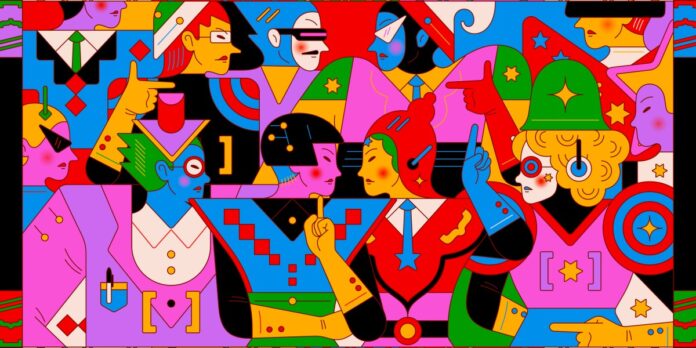This is today’s edition of The Download, our weekday newsletter that provides a daily dose of what’s going on in the world of technology.
What is AI?
AI is sexy, AI is cool. AI is entrenching inequality, upending the job market, and wrecking education. The AI boom will boost the economy, the AI bubble is about to burst. AI will increase abundance and empower humanity to maximally flourish in the universe. AI will kill us all.
What the hell is everybody talking about?
Artificial intelligence is the hottest technology of our time. But what is it? It sounds like a stupid question, but it’s one that’s never been more urgent.
If you’re willing to buckle up and come for a ride, I can tell you why nobody really knows, why everybody seems to disagree, and why you’re right to care about it. Read the full story.
—Will Douglas Heaven
The Chinese government is all in on autonomous vehicles
There’s been so much news coming out of China’s autonomous-vehicle industry lately that it’s hard to keep track.
The government is finally allowing Tesla to bring its Full Self-Driving feature to China. New government permits let companies test driverless cars on the road and allow cities to build smart road infrastructure that will tell these cars where to go.
In short, there are a lot of changes taking place. And they all point in the same direction: The Chinese government is throwing its weight behind the autonomous-vehicle industry and is eager to come out on top while other countries take a more cautious approach. Read the full story.
—Zeyi Yang
This story is from China Report, our weekly newsletter covering tech and power in China. Sign up to receive it in your inbox every Tuesday.
The must-reads
I’ve combed the internet to find you today’s most fun/important/scary/fascinating stories about technology.
1 Microsoft and Apple will no longer sit on OpenAI’s board
The move comes as regulators start to pay close attention to Big Tech’s investments in AI startups. (FT $)
+ Microsoft claims its exit is down to OpenAI’s newfound stability. (WSJ $)
+ OpenAI will update its stakeholders with regular meetings, instead. (Bloomberg $)
2 The US has taken down a Russian bot farm on X
The propaganda mill used AI to scale up its operations. (WP $)
+ Google Search results are full of Russian AI spam, too. (Wired $)
+ The Kremlin is rewriting Wikipedia to suit its own agenda. (Economist $)
3 Amazon claims to have met a clean energy goal seven years early
Some experts aren’t convinced its calculation method is up to scratch, though. (NYT $)
+ Carbon capture needs to improve if we’re ever to move away from fossil fuels. (Knowable Magazine)
+ How electricity could clean up transportation, steel, and even fertilizer. (MIT Technology Review)
4 Rechargeable batteries come at an environmental cost
They appear to be a growing source of forever chemicals. (The Verge)
+ The race to destroy PFAS, the forever chemicals. (MIT Technology Review)
5 What happens to your money when your startup bank folds?
Plenty of customers are finding out the hard way. (NYT $)
6 Crypto fans are up in arms over Germany selling confiscated bitcoin
But the state of Saxony doesn’t have a choice. (CoinDesk)
+ Crypto scams are alive and well. (Wired $)
7 How to prepare your home for a hurricane
Stronger materials, tighter seals, and a whole lot of work. (Wired $)
+ The quest to build wildfire-resistant homes. (MIT Technology Review)
8 No one answers the phone anymore
And it’s a bigger problem than you’d think. (Slate $)
9 Philips Hue smart lightbulbs seem to have a mind of their own 
Owners claim the bulbs are overriding settings to full brightness. (Insider $)
10 Gen Z uses the iPhone Notes app to generate outfits
All those little digital stickers are coming in handy. (Vogue Business $)
Quote of the day
“I faced the issues of AI early, but it will happen for others. It may not be a happy ending.”
—Lee Saedol, the legendary Go player who lost to Google DeepMind’s AI program in 2016, warns an audience in Seoul about the risks the technology may pose, the New York Times reports.
The big story
This super-realistic virtual world is a driving school for AI

February 2022
Building driverless cars is a slow and expensive business. After years of effort and billions of dollars of investment, the technology is still stuck in the pilot phase.
Autonomous technology company Waabi thinks it can do better. In 2021 it revealed the controversial new shortcut to autonomous vehicles it’s betting on. The big idea? Ditch the cars.
Wasabi has built a super-realistic virtual environment called Waabi World. Instead of training an AI driver in real vehicles, it plans to do it entirely inside the simulation. But simulation alone is a bold strategy, and how far it can go depends on how realistic Waabi World really is. Read the full story.
—Will Douglas Heaven
We can still have nice things
A place for comfort, fun and distraction to brighten up your day. (Got any ideas? Drop me a line or tweet ’em at me.)
+ If this video doesn’t fill you with joy, I don’t know what will. 
+ Apo Whang-Od Oggay is the world’s oldest tattoo artist, and very cool.
+ The world’s most difficult maze holds a very interesting secret.
+ Netflix’s Supacell features some of the very best of Black British talent.
